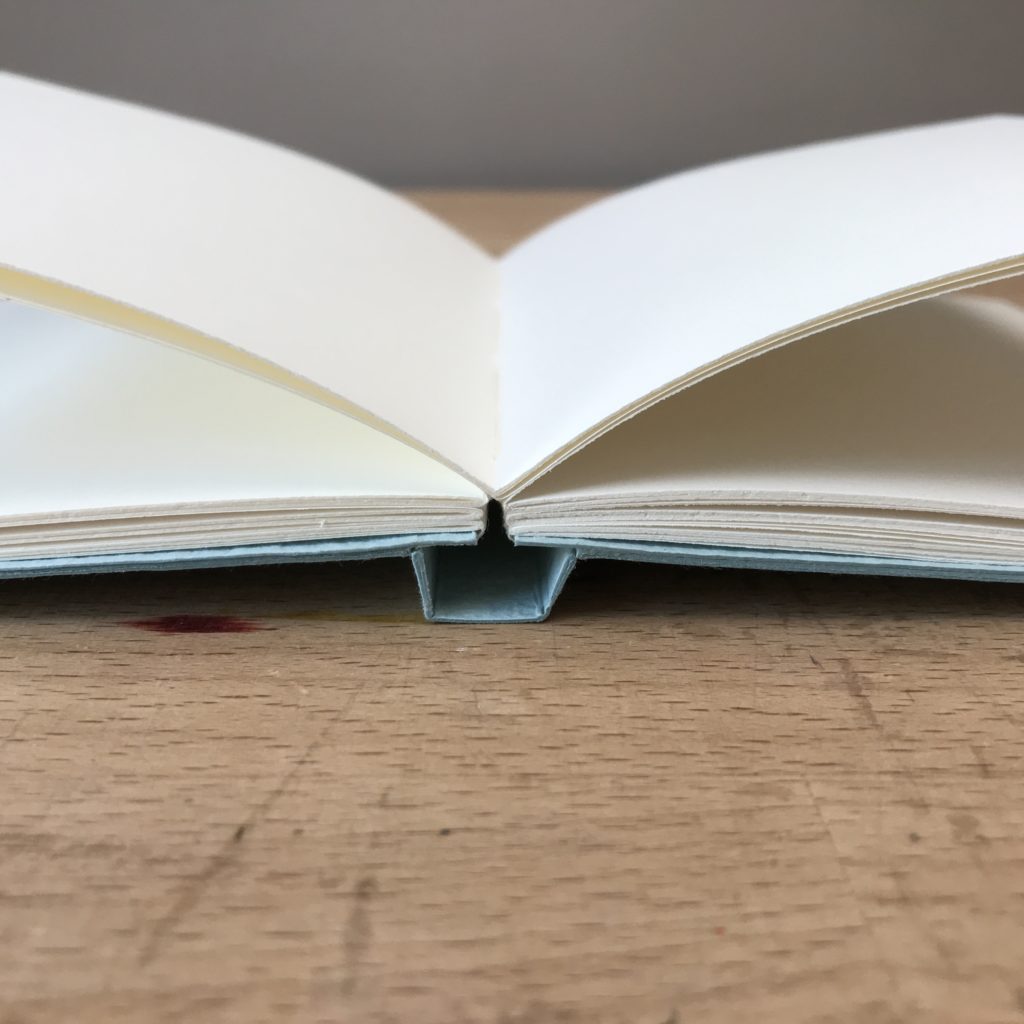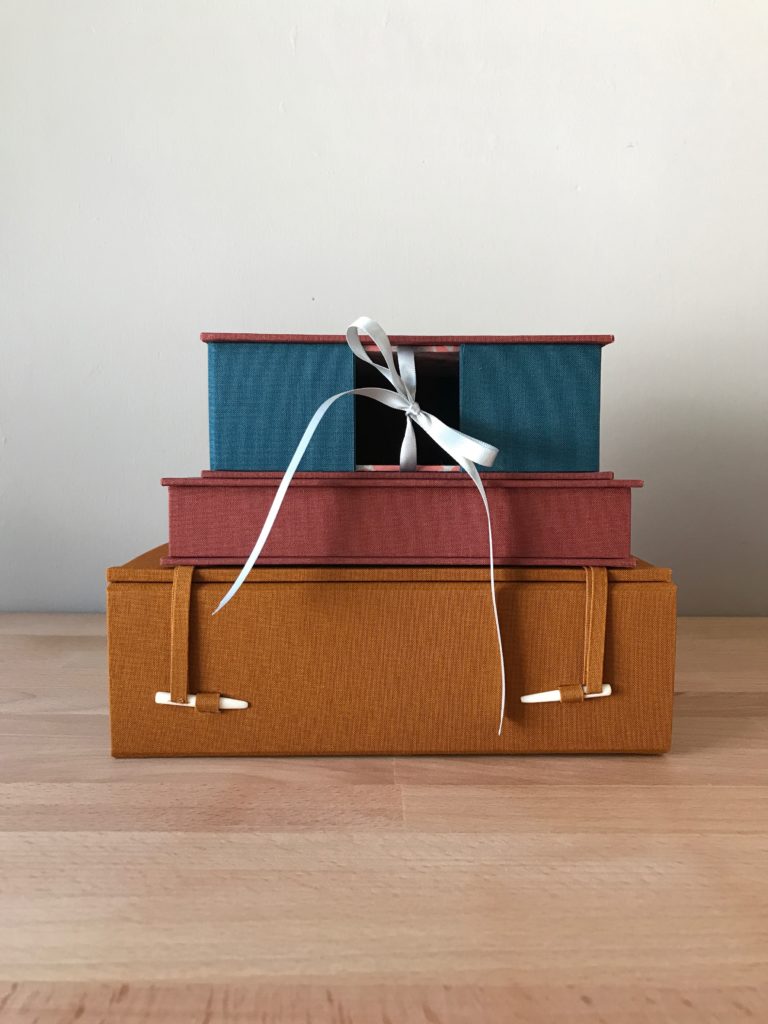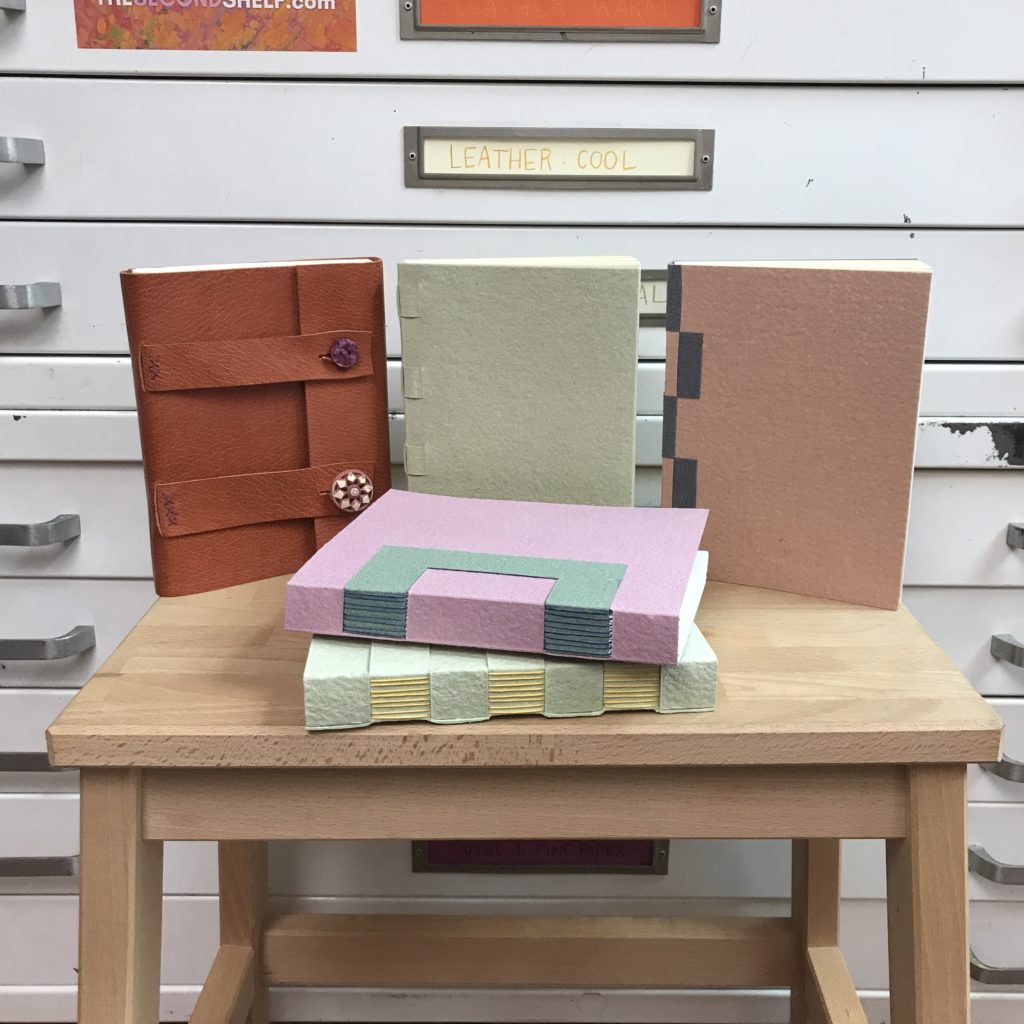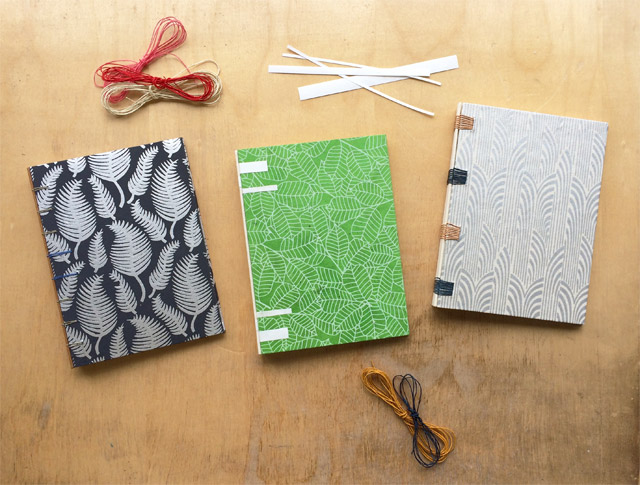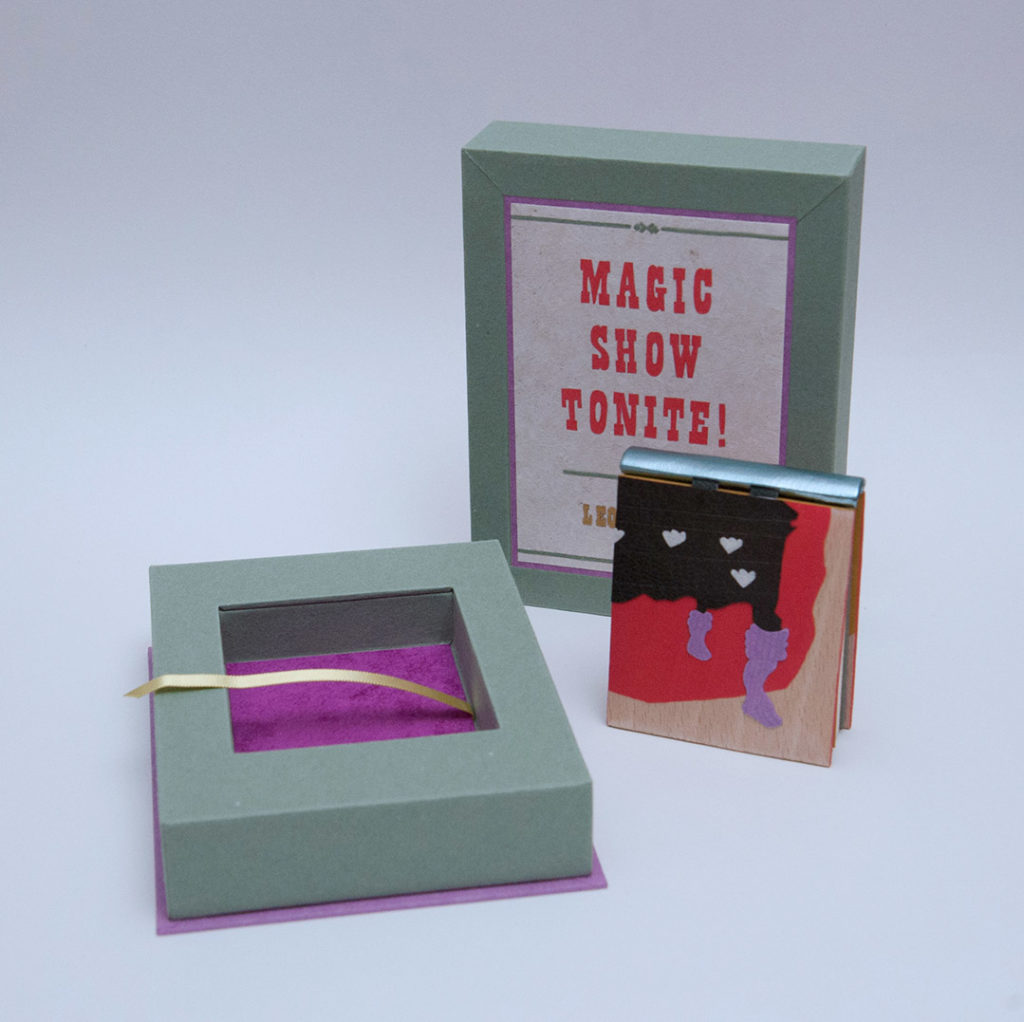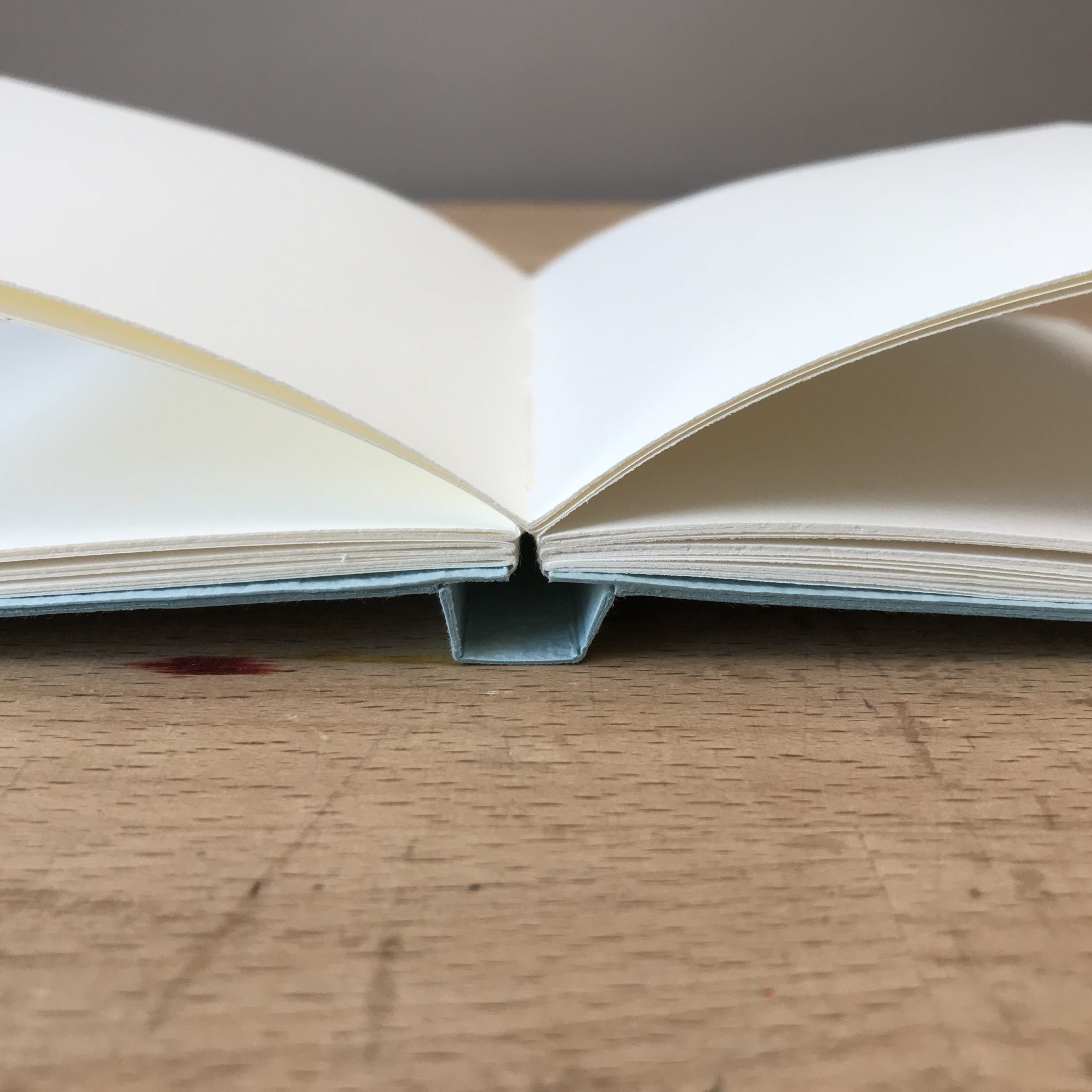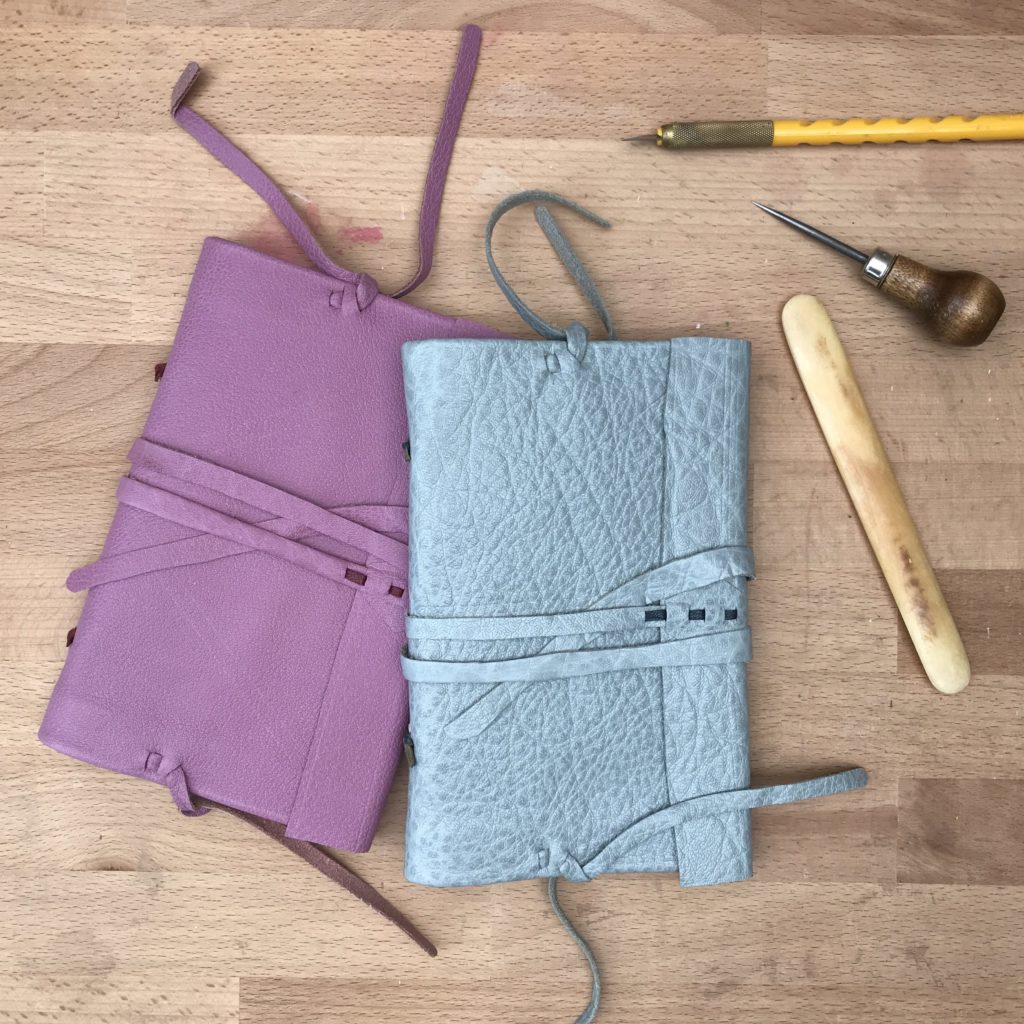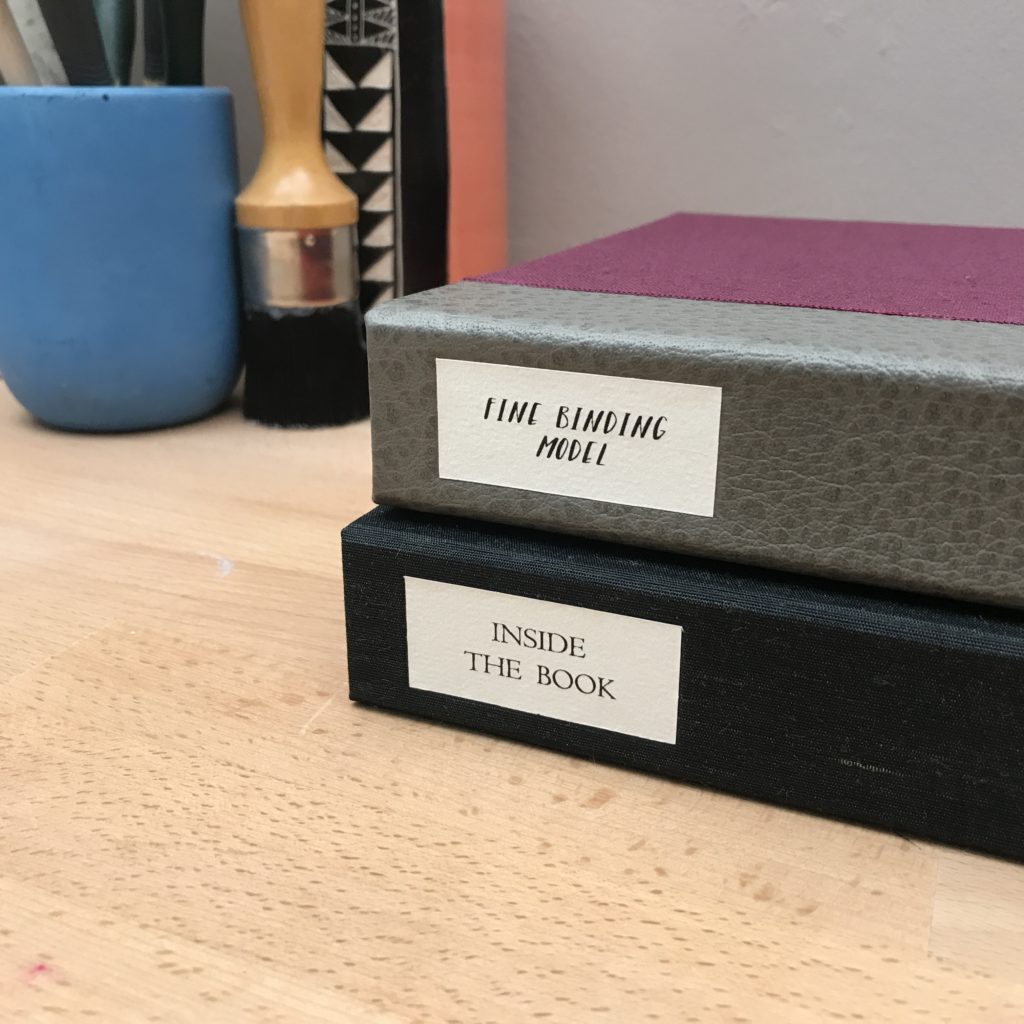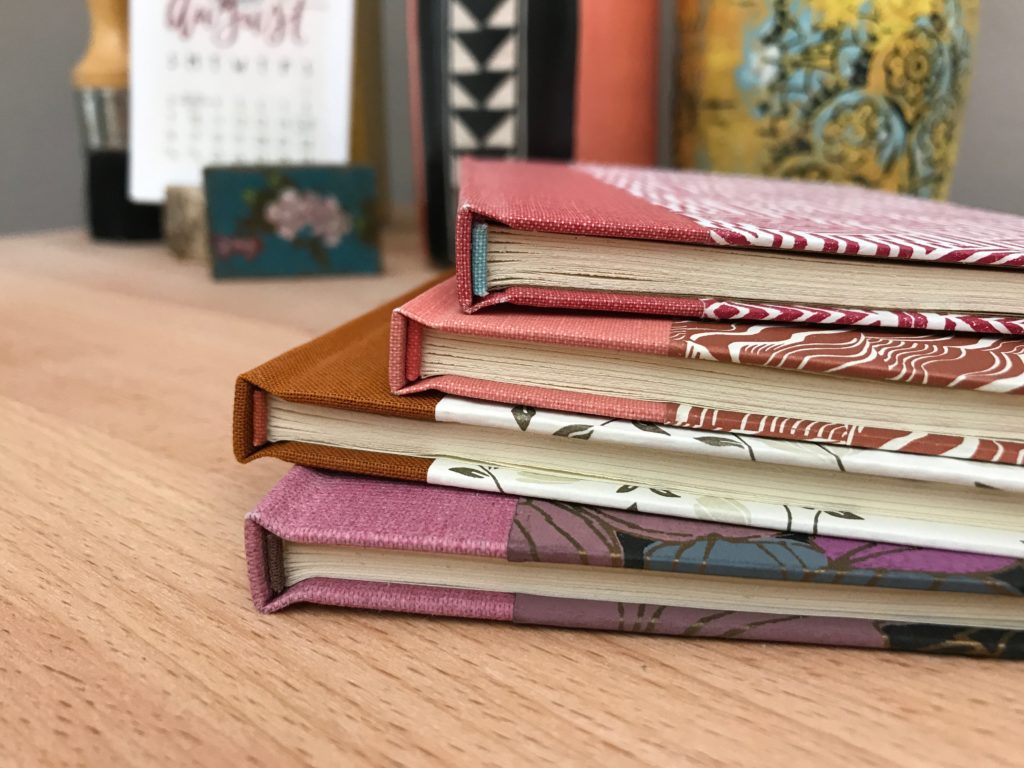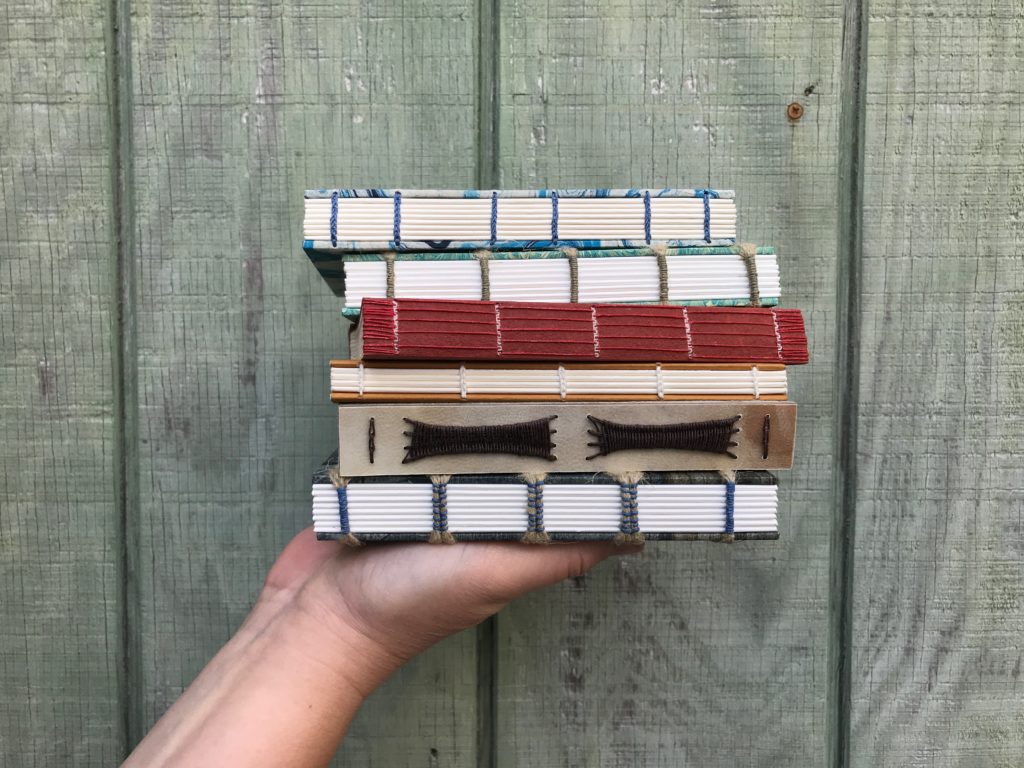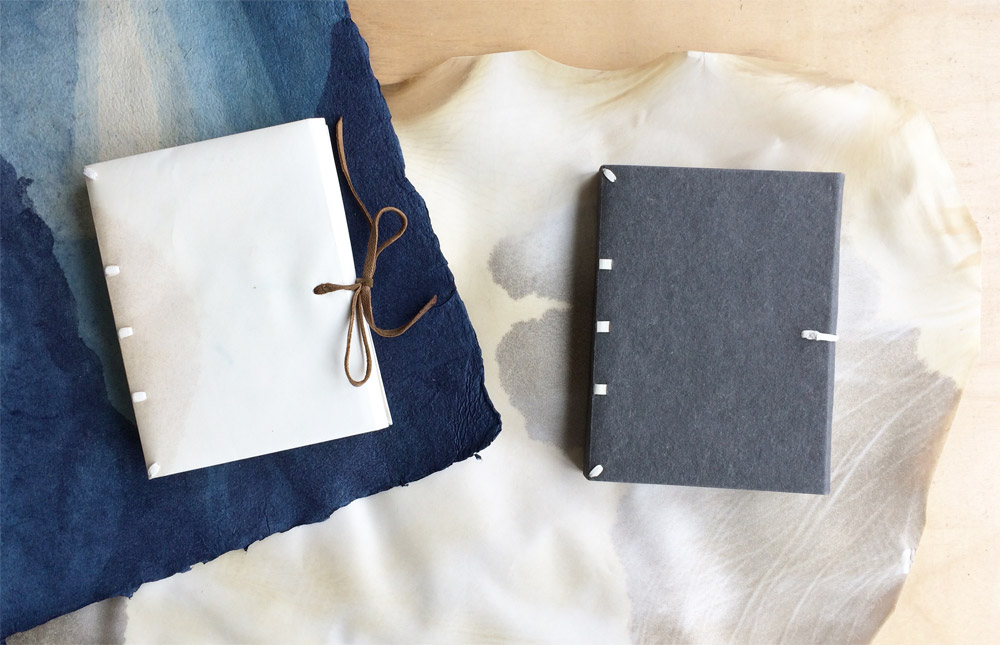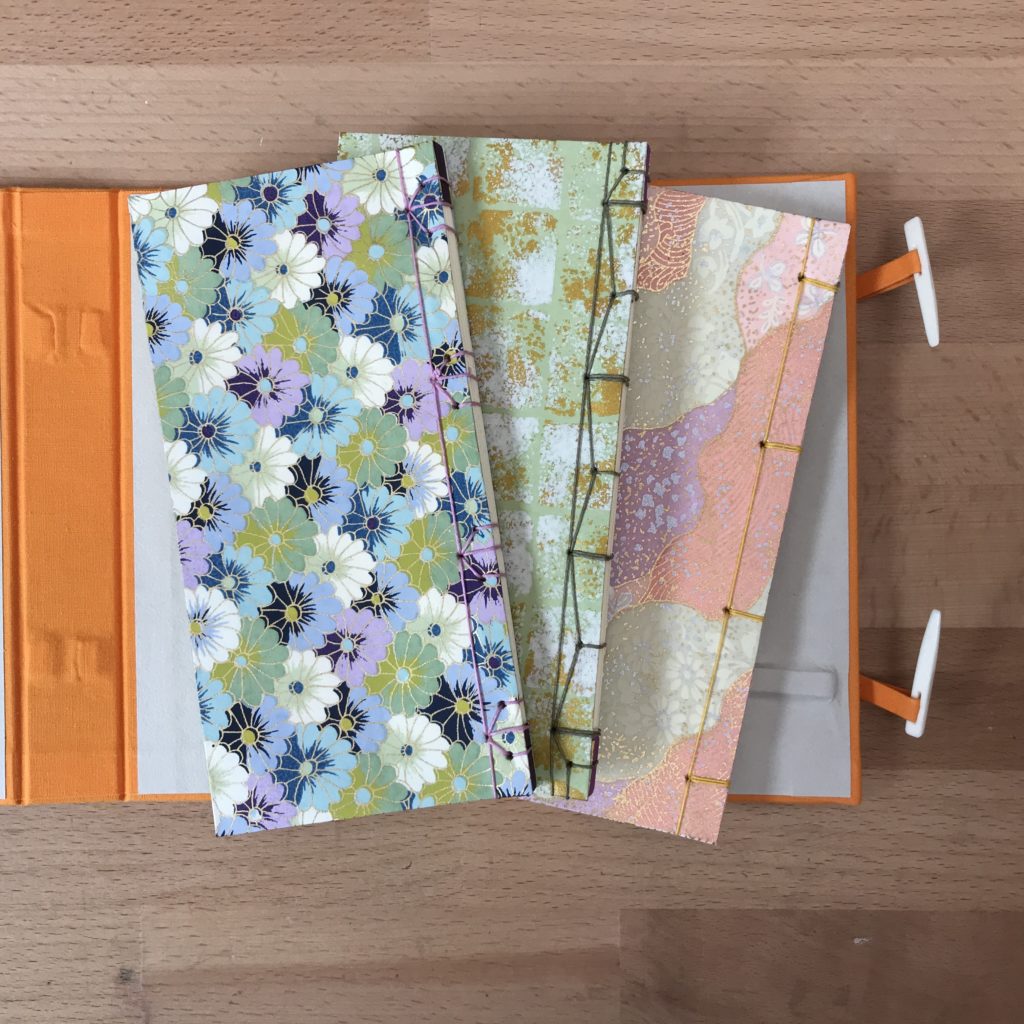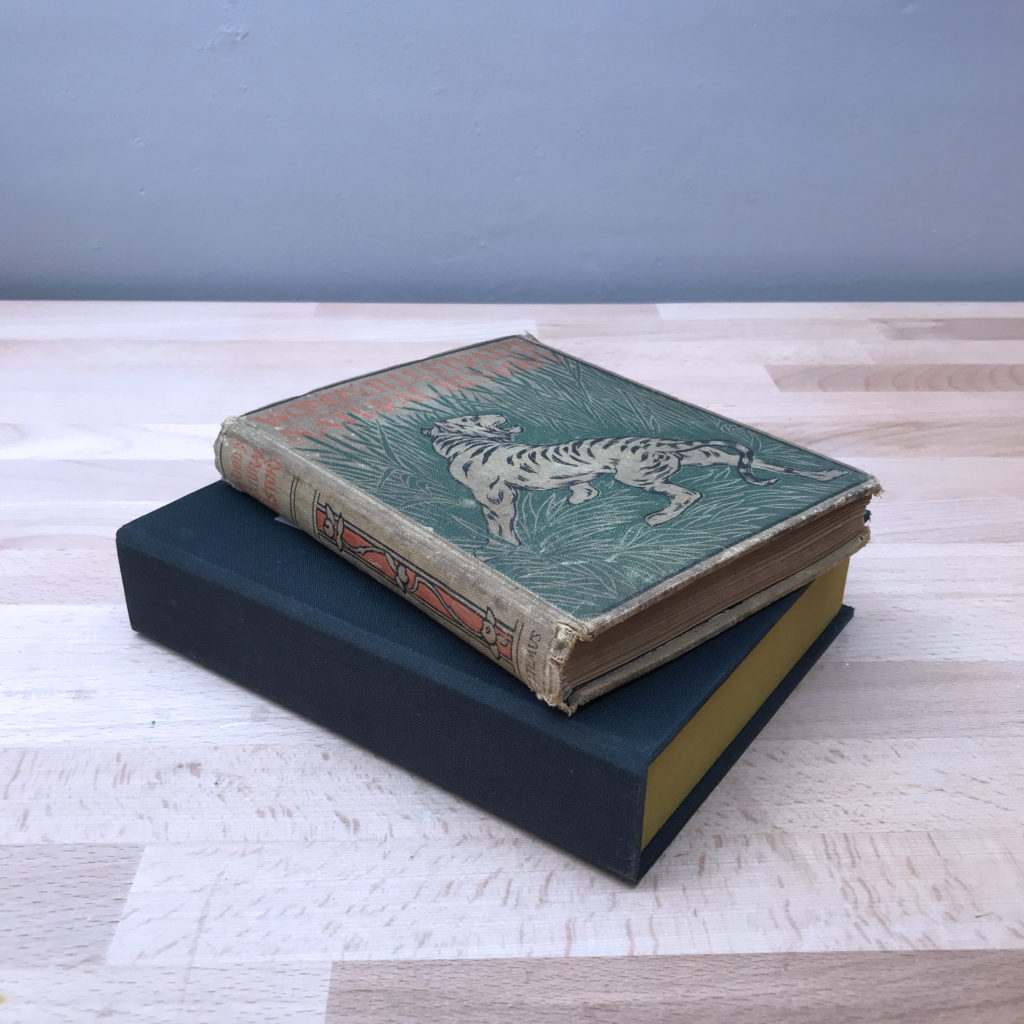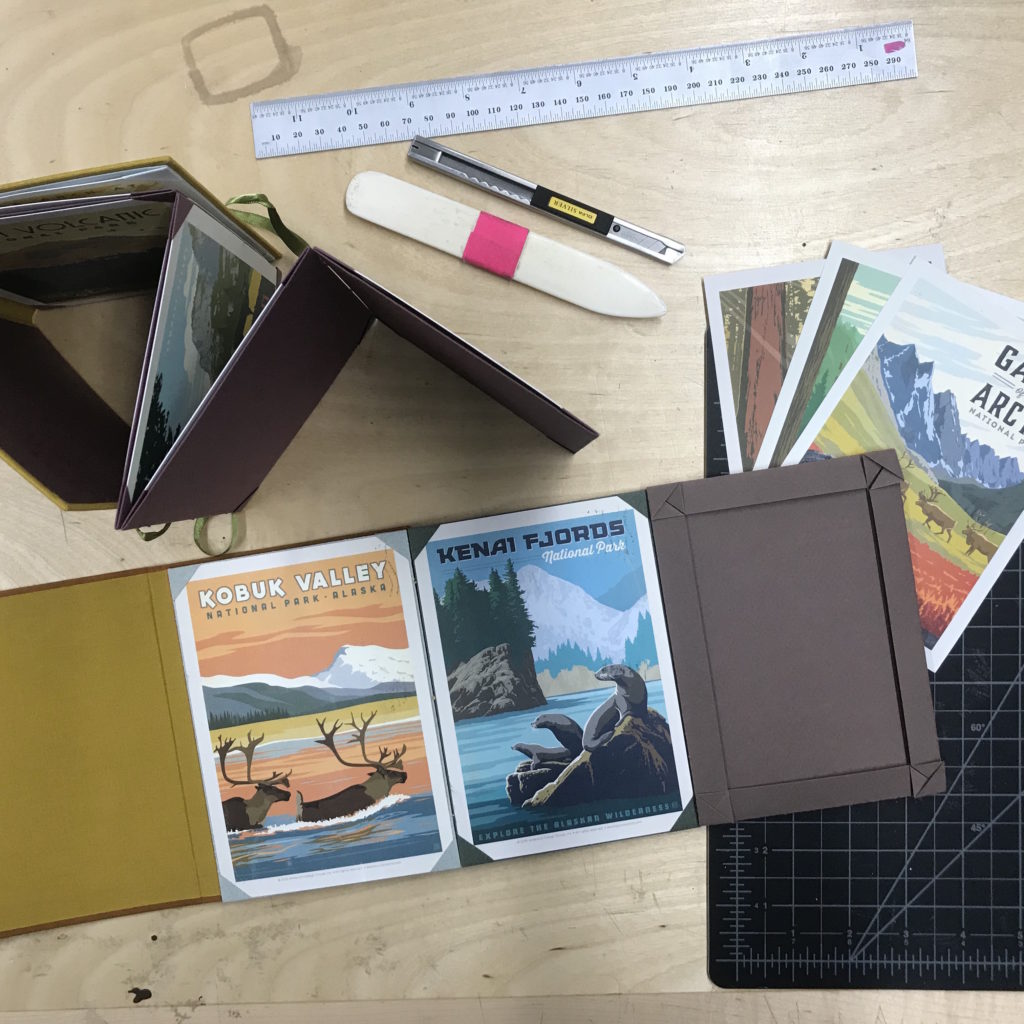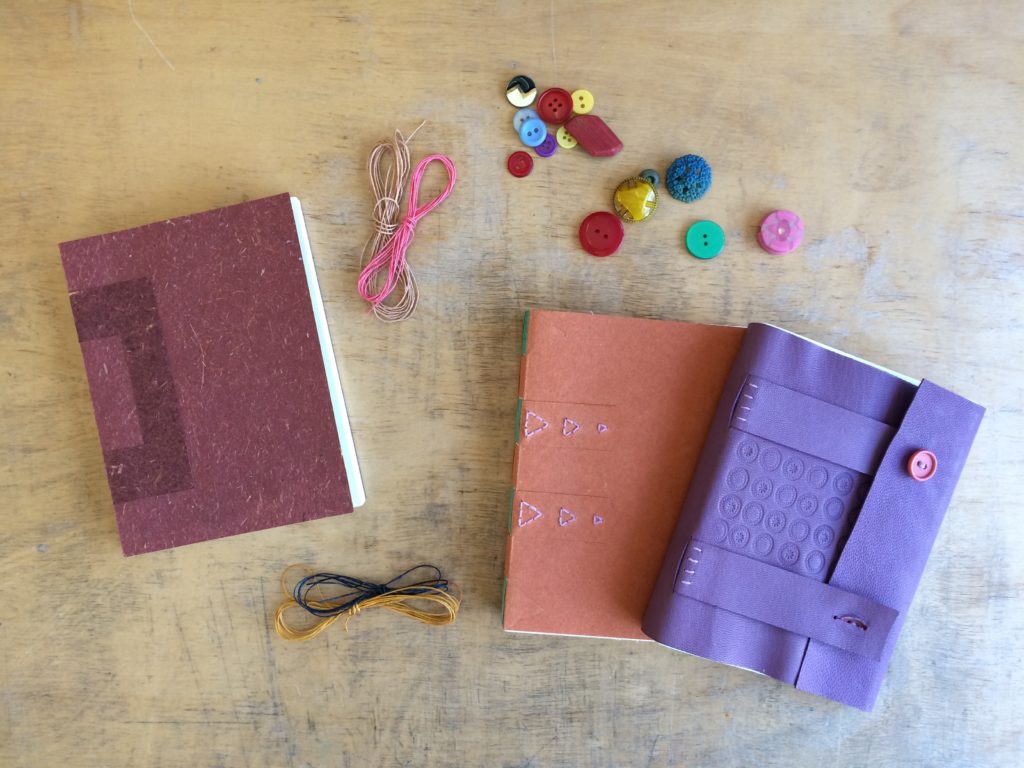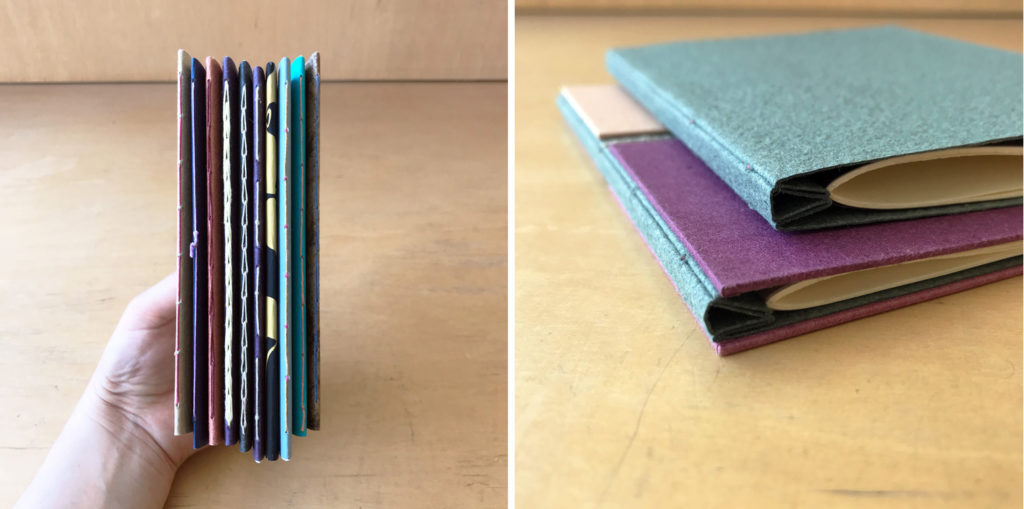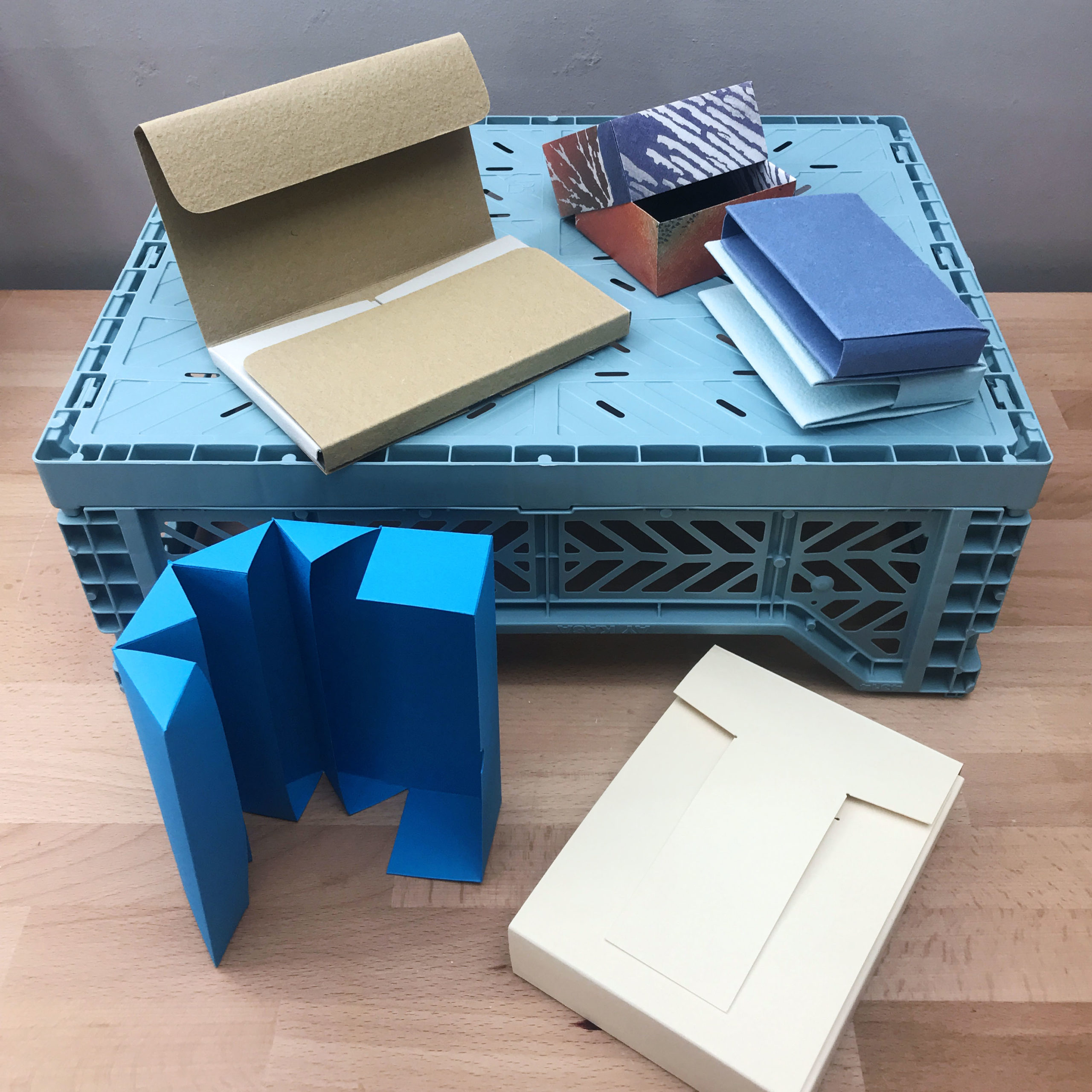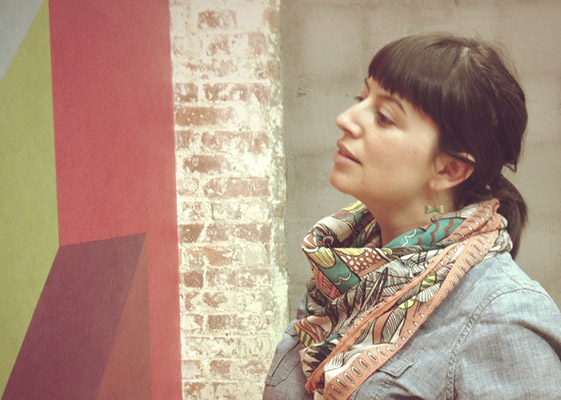The blog is going to experience a makeover in early 2023. To get regular updates on upcoming workshops, please sign-up for the newsletter.
FEBRUARY
Dos Rapporté Binding
2 Sessions // February 11 & 12 (Sat & Sun mornings)
9:00am – 11:30am (CST)
SOLD OUT – Wait List
Dos Rapporté is an elegant binding created by Ben Elbel around 2005. Rapporté loosely translates from French as something that comes back together. To create this unique structure, the covers and spine are covered separately and brought together to finalize the binding. This binding is an elegant solution for a book that can open flat based on the unique folding technique for the spine piece. In this workshop students will create a model of the Dos Rapporté using bookcloth and decorative paper.
Embroidered Leather
6 Sessions // February 15, 22, March 1/2, 8, 15, 22 (Wednesday evenings)
5:00 – 7:00pm (CST)
Register by February 3rd
Historical examples of embroidered bindings typically date back from the close of the 14th to the mid-17th century and were primarily done on silk, satin, velvet or canvas. These highly decorative bindings grew out of the tradition of textile bindings that became popular in England during the 14th and 15th centuries. The embroiderers working on these bindings included both professional (predominately male artisans) and amateur needle-workers (typically women in their homes).
Within the past few decades contemporary bookbinders and book artists have been incorporating embroidery and other sewing techniques into their work. For many of these artists, it was an easy transition to bring the two mediums together. The range of materials and methods has certainly expanded beyond the historical examples. Using thread over traditional binding techniques allows the artist to express their vision in an unique way and introduces a different tactile experience to the binding. Embroidered threads can be used to draw in the abstract or add highlights and shadows to an illustrative design. The threads can be kept neat or left to tangle.
In this workshop, students will work from start to finish on their own embroidered leather binding over the course of several sessions. Students will be asked to prep their own text block and leather for a full leather case binding, however a kit of materials is available for purchase. Students will be introduced to a few hand-embroidery stitches and the best techniques for sewing into leather, cloth and paper. We will also discuss ways to transfer the design onto the material, how to incorporate onlays and how to prepare the finished embroidered piece for covering.
This workshop will include live instruction through Zoom, which will be recorded and available to participants for a limited period of time. This workshop will not cover the foundations of working with leather, therefore students must have some prior knowledge of leather work. However, the embroidery techniques taught in this workshop can be applied to other materials such as cloth or paper. Please contact me if you have questions determining if this workshop is right for you.
APRIL
Tue-Mouche Binding
2 Sessions // April 15 & 16 (Sat & Sun mornings)
9:00am – 11:30am (CST)
Register by April 4th – 4 SPOTS LEFT
Translated to “flypaper”, the Tue-Mouche was developed by Ben Elbel as a variation to the Dos Rapporté structure (another one of his innovations). The Tue-Mouche is an easy and economical form of bookbinding. The covers are constructed entirely from heavyweight paper, layered to create rigidity and strength, while the flexible spine allows the binding to open without constraints. In this workshop students will learn how to create the Tue-Mouche structure from start to finish.
Box Series
4 Sessions // April 18, 20, 25, 27 (Tues & Thurs evenings)
5:00pm – 7:30pm (CST)
Register by April 6th
Boxes come in all shapes and sizes. In this workshop, we’ll look at just three examples: French-Tray with Drop Spine, Clamshell and Japanese Box Case. Students will learn how to assemble these three styles of boxes while also discussing the ways to measure for custom box-making. This workshop will give you the foundational skills to build and modify your own boxes. It will also explore different ways of creating closures for boxes.


